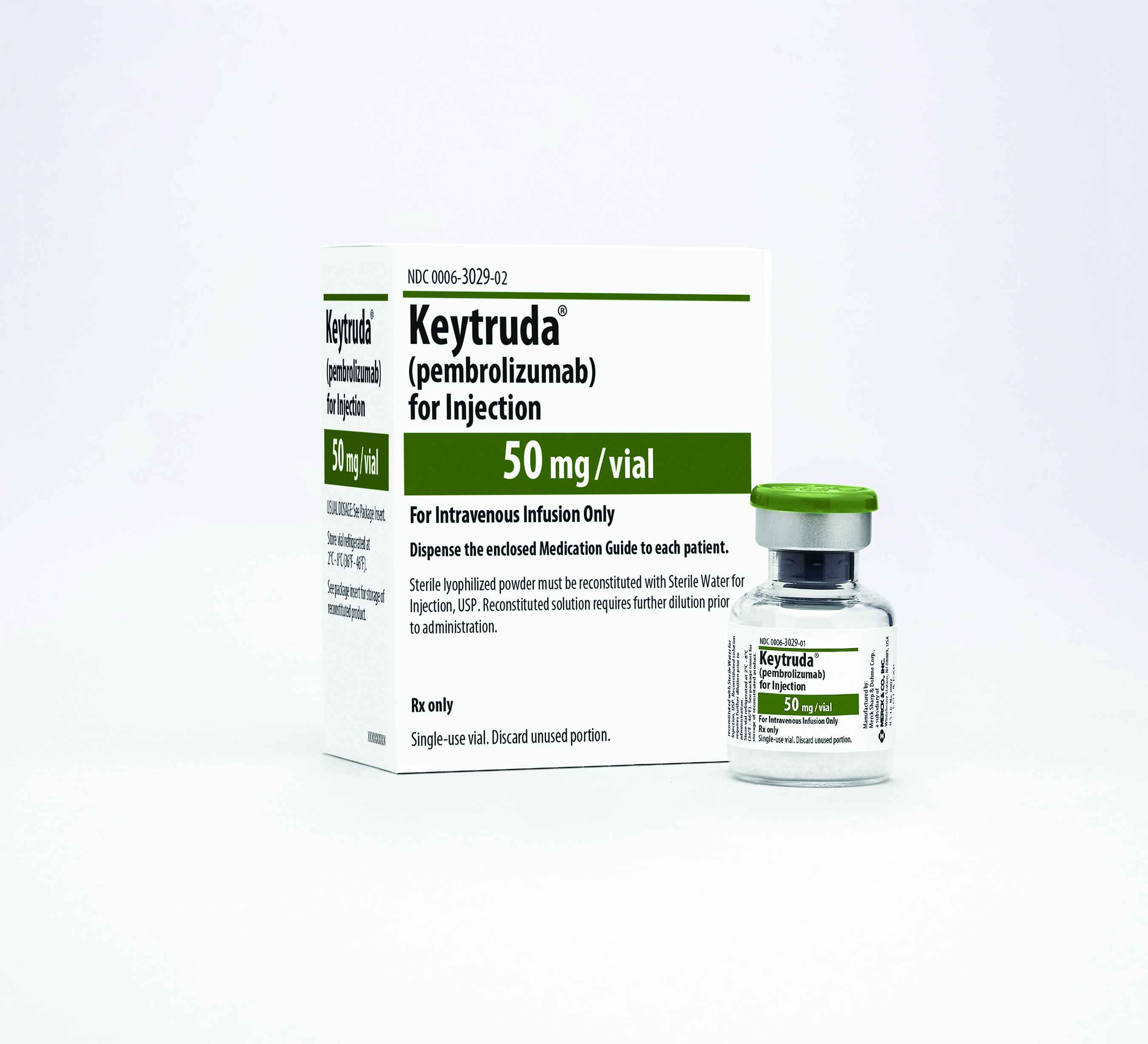First approval for Keytruda in breast cancer setting
Merck’s anti-PD-1 therapy Keytruda won marketing clearance from the U.S. Food and Drug Administration in November 2020 for treating triple‑negative breast cancer. The blockbuster medicine Keytruda was approved in combination with chemotherapy for the treatment of patients with locally recurrent unresectable or metastatic triple-negative breast cancer (TNBC) whose tumors express PD-L1 (Combined Positive Score [CPS] ≥10) as determined by an FDA-approved test.
The FDA approval was based on results from the Phase III KEYNOTE-355 study, where Keytruda in combination with chemotherapy – paclitaxel (pac), paclitaxel protein-bound (commonly known as nab-paclitaxel) or gemcitabine (gem) and carboplatin (carbo) – significantly reduced the risk of disease progression or death by 35 percent for patients whose tumors express PD-L1 (CPS ≥10) versus the same chemotherapy regimens alone (HR=0.65 [95% CI, 0.49, 0.86]; p=0.0012). The new indication was approved under accelerated approval based on progression-free survival (PFS).
Keytruda is the world’s second-best selling product and top seller among immuno-oncology medicines, generating sales of nearly $10.39 billion for Merck during the first nine months of 2020. The humanized monoclonal antibody blocks the interaction between PD-1 and its ligands, PD-L1 and PD-L2, thereby activating T lymphocytes which may affect tumor cells and healthy cells.
The Keytruda combo for TNBC will compete for market share with Roche/Genentech’s Tecentriq, which became the first immuno-oncology drug approved by the U.S. FDA in the hard-to-treat cancer type during March 2019. The accelerated approval for Tecentriq for use with Celgene’s chemotherapy Abraxane (paclitaxel protein-bound) is intended for PD-L1-positive patients.
According to a Fierce Pharma report, as noted by Evercore ISI analyst Umer Raffat, the Merck regimen allows physicians a wider range of chemo options than the Roche combo. The Keynote-355 trial used three chemotherapies – Abraxane, paclitaxel, or a combo of gemcitabine and carboplatin – while Roche’s IMpassion130 study only evaluated Abraxane.
“That detail may not have made much of a difference for physicians on the ground in the past, but concerning data from late last year will likely deter physicians from trying Tecentriq with other chemo types,” according to the Fierce Pharma analysis. “In a public notice issued in September, the agency alerted physicians not to use the Tecentriq-paclitaxel combo in previously untreated TNBC. Detailed data unveiled at this year’s ESMO meeting from the IMpassion131 trial showed that the combo not only didn’t slow tumor progression any better than solo chemo did, but also even increased the likelihood of death. Both Merck and Roche, meanwhile, are eying earlier TNBC use.”


